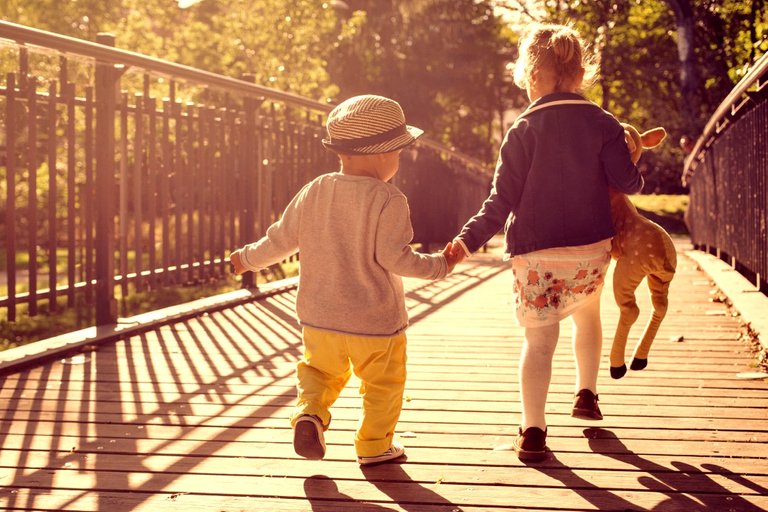
How does the old saying go? You cannot choose your family, but you can choose your friends. Friends are something like the modern family. They are there when we need them. They listen to us, they give advice; they simply get us. But they are rare, real friends.
It is often coincidence that plays one into somebody else's hands. The course, whether or not a friendship develops from it, is set after this. In the early stages of friendship, it is crucial that self-revelation is returned. I share my biggest secret with you, I am exposing myself; I expect you to do the same. If the favour is returned, a new friendship starts to sprout. The chemistry must be right, similar values and visions reduce the natural distance between humans. An important indication is whether you can laugh together, share the same humour. Like will to like – this is just one aspect of friendship. A spark can also develop between people whose personalities are not very similar. More important than character is the emotional proximity. An intimate trust base can only form when two people let each other in and reveal something of themselves. And this is a good breeding ground for a friendship.
A special ingredient: time
Time to experience something together, to be there for each other, to lend an ear in the middle of the night. For a good friendship, there is a willingness to actively contribute to the relationship. To understand a friend properly, one has to engage with him or her intensively. Bonding activities are very important. For example, a trip taken together or a yoga class. Even more special are activities that reveal something about someone’s history, like a visit to one’s hometown. The honest interest in the other person, in their life and development, is the foundation of every good friendship.
A real friendship lives from the openness and admiration for each other. Countless research and long-term studies show that friends are an important factor of a happier life, increase life expectancy, have a stabilising effect on our mind, strengthen our self-esteem and give us the sense of belonging. With familiar people on our side, problems appear no longer quite so threatening.

Explosive potential
Then suddenly a conflict arises that draws a deep moat between good friends. Usually, this happens when one of the friends’ lives changes drastically; from one minute to the next. Be it a move to another city, a new partner, a change in careers, or the arrival of a baby. If a friend changes so fundamentally, friendship often changes too. And it can be worse than a breakup. Because we have higher expectations of friendship than of love. On the one hand friendship is an eternal anchor, steady, static, reliable. But on the other hand, it is to deal with every turn, every childish scream, every career step, and every new self-realisation idea that comes to mind. There will be a time when both parties retreat from the relationship. Total silence. This is okay; you have to give the other person time to adjust to the new situation. After some time, a real friend will always return.
The beauty of a conflict: It deepens the friendship, enriches it by one dimension. To know that one can rely on the other for help, that the other is there and stands by one, even if one is wrong, makes a friendship something special. The quality of a friendship is reflected in their conflicts, the struggles that arise in friendship are often related to ourselves. Through friendships one encounters the basic questions of life that preoccupy one. What can make us happy can also hurt us. This danger must be confronted. For a deep friendship.
The art of friendship
It is a task of life to strive for good friendships. To turn a friendship into a life-long bond, you have to actively shape it. It needs food, mutual interest, passion and vitality. The bond must be kept alive.
Despite numerous social media friends, many people are lonely. Technologies give us the illusion of society – without the requirements of friendships. Good friendship needs a face to face component and the effort to make time for each other is vital. But social media is not all doom and gloom. It also has advantages: Through the technical possibilities one can keep one’s circle of friends stable, expand, get in touch with at any time. It is easier to make new contacts, to join groups. Social media makes it easier for us to get to know our friends and to keep in touch with them over long distances. But this is not a substitute for a genuine co-existence, for the exchange of intimate secrets. Because the necessary familiarity cannot be shared with a large number of friends. And whether we have thirty friends or three, it is not the quantity that makes the friendship, it is the quality.

Explosive potential indeed